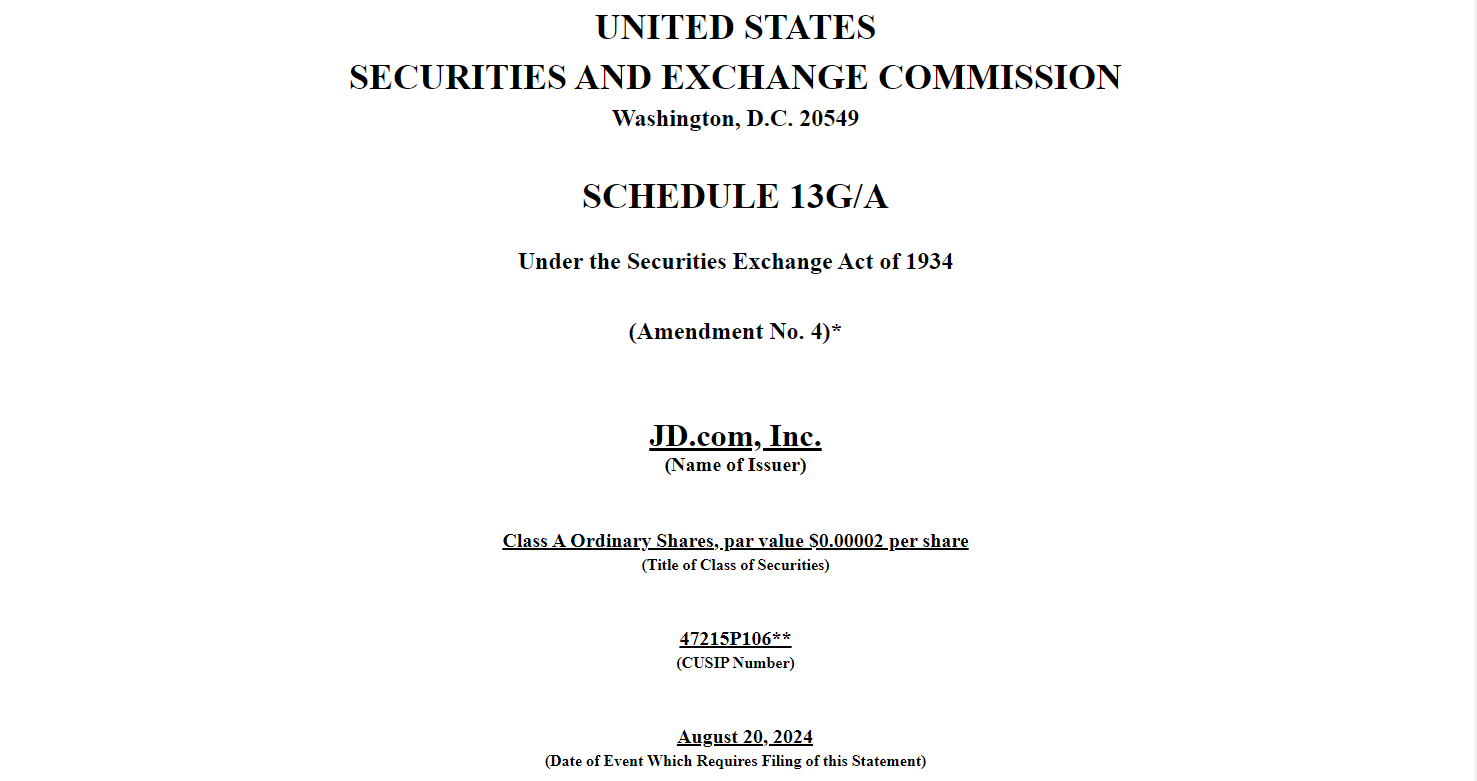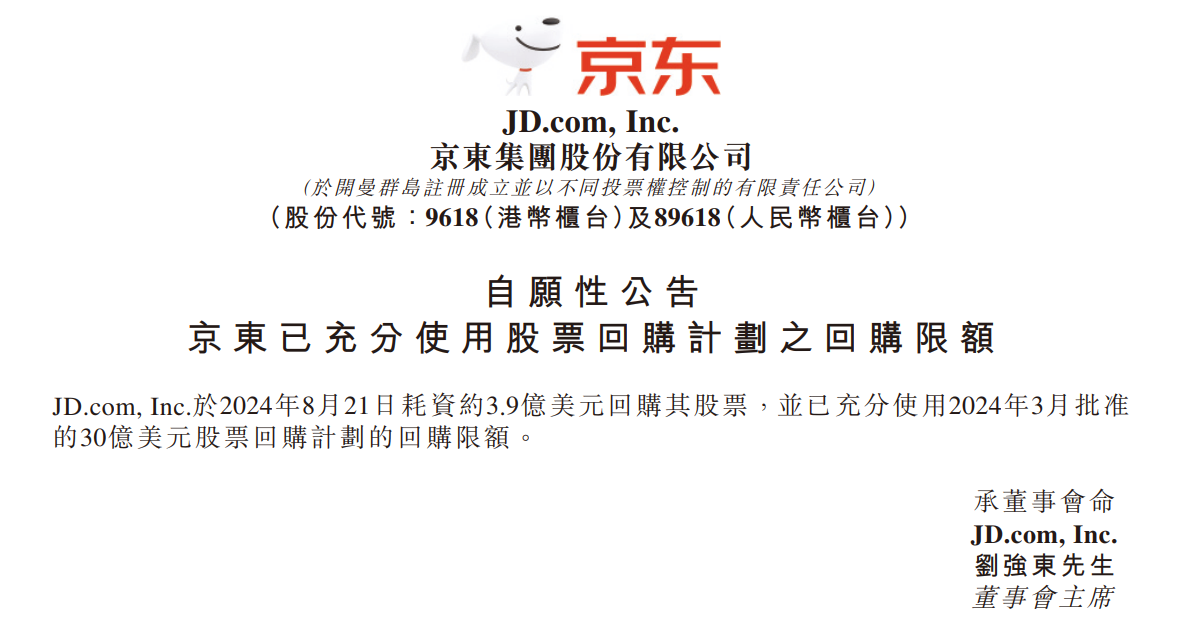Walmart Sells JD.com Stake; JD Quickly Buys Back Amid Price Drop
In its latest regulatory filing with the U.S. Securities and Exchange Commission (SEC), U.S. retail giant Walmart disclosed after the U.S. stock market session on Tuesday that it had reduced its entire stake in Jingdong shares.
In its latest regulatory filing with the U.S. Securities and Exchange Commission (SEC), U.S. retail giant Walmart disclosed after the U.S. stock market session on Tuesday that it had reduced its entire stake in Jingdong shares.

Walmart reportedly sold 144.5 million Jingdong American Depositary Shares at a price range of $24.85 to $25.85 per share, which would have allowed Walmart to cash out $3.74 billion at the highest asking price. Morgan Stanley was the broker-dealer for the sale.
The relationship began in 2016, when Walmart acquired a roughly 5% stake in Jingdong, which also acquired Walmart's No. 1 Store online marketplace, which focuses on selling groceries to high-end female shoppers in major Chinese cities. Later that year, Walmart increased its stake to 10.8%.
In a statement on the “breakup” with Jingdong, Walmart said the sale allows Walmart to “better focus on its strong growth in China, including the operation of Walmart shopping malls and Sam's Club stores, and allocate assets to other priorities.” Walmart added that “Jingdong has been a valuable partner for us over the past eight years, and the two companies will continue to work together commercially in the future as well.”
For its part, Jingdong said in a statement that it is confident in the future cooperation between the two companies.
Jingdong's Hong Kong-listed shares closed down nearly 9 percent on Wednesday on the news, and its market capitalization has shrunk by 20 percent over the past 12 months. Jingdong's Nasdaq-listed shares fell about 7 percent in pre-market trading on Wednesday, and its market capitalization has shrunk 15 percent over the past year.
On Aug. 21, Jingdong announced that the company spent about $390 million to repurchase its shares on Aug. 21, 2024, and has fully utilized the repurchase limit of the $3 billion share repurchase program approved in March 2024.

Some analysts have pointed out that the sale of the entire stake in Jingdong should be a move taken by Walmart to ease capital pressure and optimize capital allocation.
The Sam's Club franchise has always been a highlight for Walmart, and according to data from the China Chain Store Management Association, Sam's Club was the only major supermarket among the five major supermarket chains to see sales growth last year. But more and more supermarkets in China are also starting to offer a membership model similar to Sam's Club, and those rivals are putting a lot of competitive pressure on Wal-Mart. Citigroup said in a report that Wal-Mart may redeploy funds from the sale of Sam's Club stores to expand its own stores.
·Original
Disclaimer: The views in this article are from the original Creator and do not represent the views or position of Hawk Insight. The content of the article is for reference, communication and learning only, and does not constitute investment advice. If it involves copyright issues, please contact us for deletion.